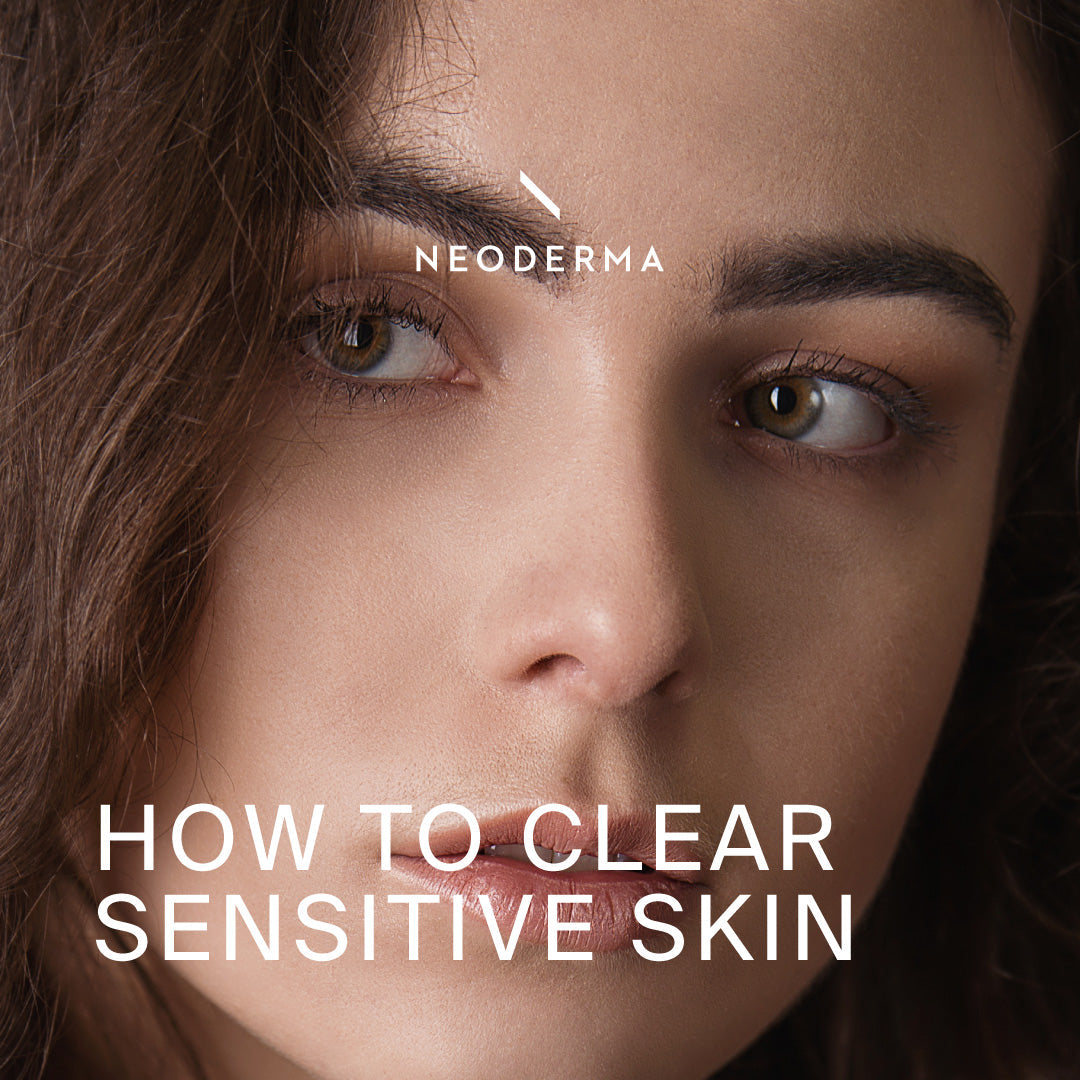Your cart is empty.

You shouldn't have to flinch every time you try something new on your skin. But for people with sensitive skin, even the basics can feel risky. The redness, the stinging, the patchy breakouts—it's exhausting. If you've been quietly asking yourself how to clear sensitive skin without making it worse, here's the good news: sensitive skin isn't impossible to manage. The trick isn't piling on more products—it's choosing the right ones, being consistent, and understanding what your skin's really asking for.
Understanding what's behind sensitive skin
Before we delve into how to clear sensitive skin, it's helpful to understand what's happening beneath the surface. Sensitive skin isn't a type—it's more like a tendency. It means your skin barrier (the protective outer layer) is compromised or reactive, so it overreacts to triggers that most people's skin can handle.
Common causes of sensitive skin flare-ups include:
Harsh cleansers or over-washing
Fragranced or alcohol-heavy products
Seasonal changes (dry air, heat, or wind)
Stress, lack of sleep, and even diet
Overuse of active ingredients (retinol, acids, etc.)
Knowing what you're up against is the first real step toward figuring out how to clear sensitive skin for good.
How to clear sensitive skin without making it worse
It sounds counterintuitive, but less really is more. When your skin is reactive, it doesn't need 10 products—it needs relief.
Here's how to clear sensitive skin without overcomplicating it:
(1) Start with a gentle, non-stripping cleanser. Look for fragrance-free, sulfate-free, creamy, or gel cleansers. Cleansing once at night is often enough.
(2) Moisturize like it's your job. Hydration helps rebuild your skin barrier. Go for ceramides, squalane, or glycerin-based, natural face moisturizers that calm and protect.
(3) Soothe, don't stimulate. Ingredients like aloe, centella asiatica, niacinamide, and colloidal oatmeal are your skin's best friends.
(4) Introduce actives very slowly. If you want to add something like a retinoid or vitamin C, wait until your skin is calm. Start with low concentrations and space out usage.
(5) Stick to a routine. Flipping through new products constantly? Your skin won't thank you. Consistency is key when figuring out how to clear sensitive skin.
Ingredients to avoid when clearing sensitive skin
Even products labeled "for sensitive skin" can include irritants. Watch out for:
Synthetic fragrance or essential oils
Denatured alcohol (often listed as "alcohol denat.")
Harsh exfoliants (scrubs with beads, rough cloths)
High concentrations of AHAs or BHAs
Overuse of clay masks or drying acne treatments
Knowing how to clear sensitive skin also means knowing what not to put on it. Sometimes, healing is about subtraction, not addition.
Lifestyle tweaks that support clearer, calmer skin
Skincare is huge—but it's not the only thing that matters. What's happening on the inside shows up on the outside.
Some often-overlooked ways to support your skin:
Manage stress: cortisol flare-ups can directly impact skin sensitivity
Eat anti-inflammatory foods: like berries, greens, and omega-3s
Get enough sleep: repair happens overnight
Wash pillowcases and phone screens regularly
Avoid hot showers and harsh fabrics on your face
When you think about how to clear sensitive skin, don't stop at your bathroom cabinet—your habits matter just as much.
How long does it take to clear sensitive skin?
Here's the honest answer: it depends. Some people see improvement in days, others take weeks or longer. If you've been bouncing between products, your skin may need time to recover before it responds.
The secret? Stick with a calming routine, avoid triggers, and don't panic when your skin doesn't change overnight. How to clear sensitive skin is more marathon than sprint. But slow, steady progress does show up.